
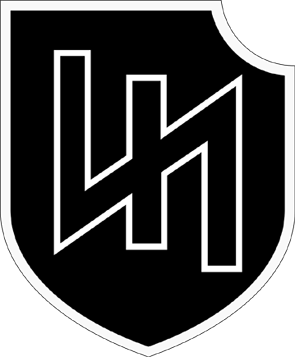
Interview with Rupert Dangl, winner of the German Cross in Gold, an instructor and SS-Untersturmführer in 2. SS-Panzer Division 'Das Reich', Pullach, Bavaria, 1988.
[Above: Rupert Dangl is second from left.]
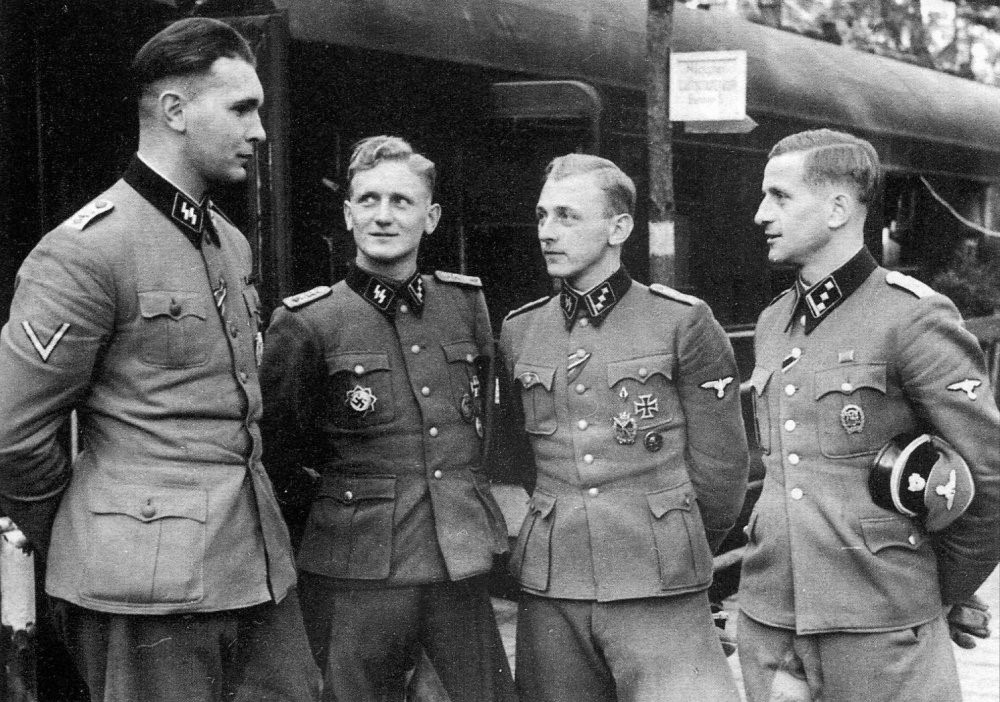



Interview with Rupert Dangl, winner of the German Cross in Gold, an instructor and SS-Untersturmführer in 2. SS-Panzer Division 'Das Reich', Pullach, Bavaria, 1988.
[Above: Rupert Dangl is second from left.]


Rupert: Certainly, you may, young man. I have heard good things and you have my friendship. I came to the SS in 1937 as a candidate pledge. After the training time was over, I took my oath here in Munich at the Feldherrnhalle on the 9th of November. It was a very proud moment for me. I was also an NSDAP member; back then it was something to be openly proud of. I joined the SS because I saw a place to fit in that matched my beliefs. Himmler and his SS were very true to the ideals of the Führer. We were the bodyguards of the movement. The SS provided the guards to sites such as the Honor Temples, Feldherrnhalle, and the Führer. I must tell you the black uniforms also attracted the ladies as well. They always liked a man in uniform, but black really stood out. I was very proud to wear that uniform and the silver runes that signified victory in this life. There was something about the symbols used back then; you had to see it to understand.
Himmler created the SS to be very loyal to the ideas of National Socialism, thus he ordered that only the best could join. One had to be at least 5'10", be in shape and fit, both mentally and physically. You had to be of pure Aryan blood, meaning no mixed race from Jews or outside northern Europe. There were tests that had to be passed, but once done, one could be admitted in a probationary period to see if you would work out. I saw a man who was kicked out in this period for drinking too much and berating a woman server at a restaurant. The code of conduct we lived by was very strict. We even had to obtain permission to court and marry. The idea was to marry someone who could produce healthy babies. This sounds odd today, but it was looked upon as a sin to purposely bring a defect into the world. We were given pamphlets describing this code, and the idea was to create healthy children. Germany was plagued in the Weimar years by couples with defects being encouraged to reproduce, and they did so out of control. They neglected the children, abandoned them, or killed them, in some cases. Society had to deal with this issue, so the SS sought a healthy solution, you chose your mate in a healthy way to guarantee a healthy offspring. I wanted to share that with you, so you did not think it was bad. There is always a reason behind the decisions of the day, and it was for the benefit of the nation. It is nice to share these things with you; there are not many people to talk to anymore.
[Above: An 'Ehrentempel' (Honor Temple) in Munich.]
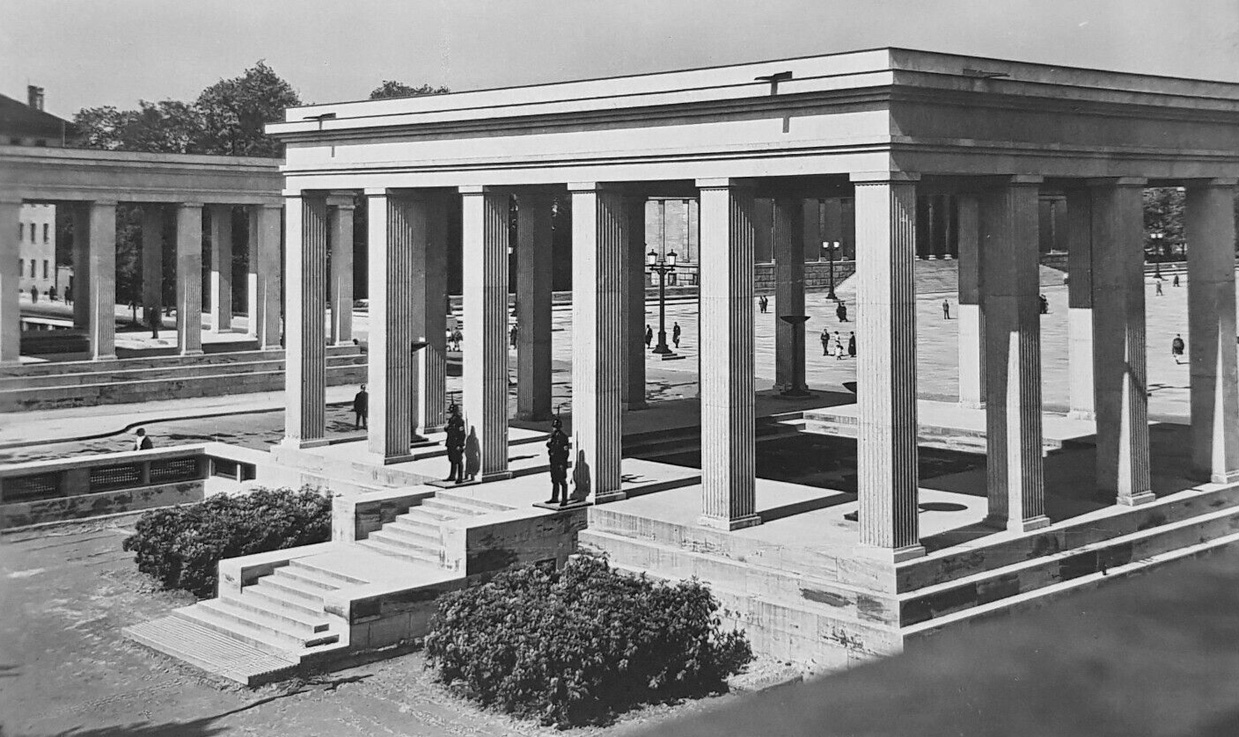
Rupert: I felt frustrated, I remember. I was frustrated that Poland would not allow the return of Danzig, or the right of way for a path to Prussia. I, like most Germans, followed events daily on this matter. We knew Poland was in a losing position, they held lands that were ripped from us. They can argue all they want that it was justified, as we lost the war, but they ignored that they took land that had Germans on it, not Poles. They persecuted the Germans who refused to become Poles. I remember seeing refugees who fled persecution arrive in the Reich. The Red Cross and welfare organizations helped them with new homes. So, it was no surprise to us to hear that Poland mobilized to fight Germany. We knew England and France would try to help Poland, so it was no surprise when they announced war. The mood was one of determination to see this through, but we never wanted war. I believe the Führer thought once Poland was beaten peace could be made, as the corridor [the Danzig or Polish Corridor separated East Prussia from the rest of Germany] was the final issue needing settling.
He was wrong in this, as he later said. The Allies only wanted to
destroy Germany and nothing else would do. They were the warmongers who
caused the war to get out of hand. So, in 1939 the SS was called to the flag.
The Poles tried to put up a fight, and they had very good weapons,
but we had more motivation. It was a happy time for me, for that November
I was selected to attend the second wartime officer's course at Bad Tölz. This
took me to 1940, just in time for the actions in the west.
What was life like at Bad Tölz?
Rupert: It was demanding of us all. I was with men who, for some, fame
would be their watchword. This was all new to us, as this was only the second
course for aspiring future SS leaders. I remember being impressed the very
first time I saw those white walls of Bad Tölz and the training grounds.
The motto the camp commander [SS-Oberführer Werner] von Scheele would ingrain in us the
very first day of arrival was, "No One Achieves Alone". We had to work as
one and not as individuals. The school was the hardest training I had ever had.
The instructors yelled and barked just like in early training.
I remember we were up early, would have to run in full pack, some
days would be cross country and in the cold. We had many classroom hours to
match the drill hours. The second wartime course was nearly 5 months long
I remember, and it was in the winter. Training officers in the SS was much
harder than in the German army. We were trained to be tacticians and leaders
of our men beyond the normal.
I am not putting down comrades in the army, but the SS took
things more seriously. Early on we did have many political discussions, these
ranged from National Socialist pros and cons, the Jewish power bases and
how they began, and religion. Of course, later in the war these went away, I
understand. We of course had to have exams on these topics, but these were
easy compared to the military-based exams.
We had to understand command and control, orders, law, air-to-ground control, leadership, adverse reactions of men, and so on. These exams
were quite hard, and a few comrades were dropped from the course. This was
a huge disappointment to them, but just like becoming an SS man was hard,
it was harder to become an officer.
We did have free time on the weekends and for the religious-minded,
they attended church, which our commander encouraged. I bet you did not
know that; our detractors say we hated God and Christ, which is very ignorant
since most all SS men were religious in some way.
Graduating from the officer training course was a very proud
moment, we were able to have a sword with knot, and presented with officer
rank. We were granted leave to prepare for our new roles.
[Above: Rupert Dangl (left).]
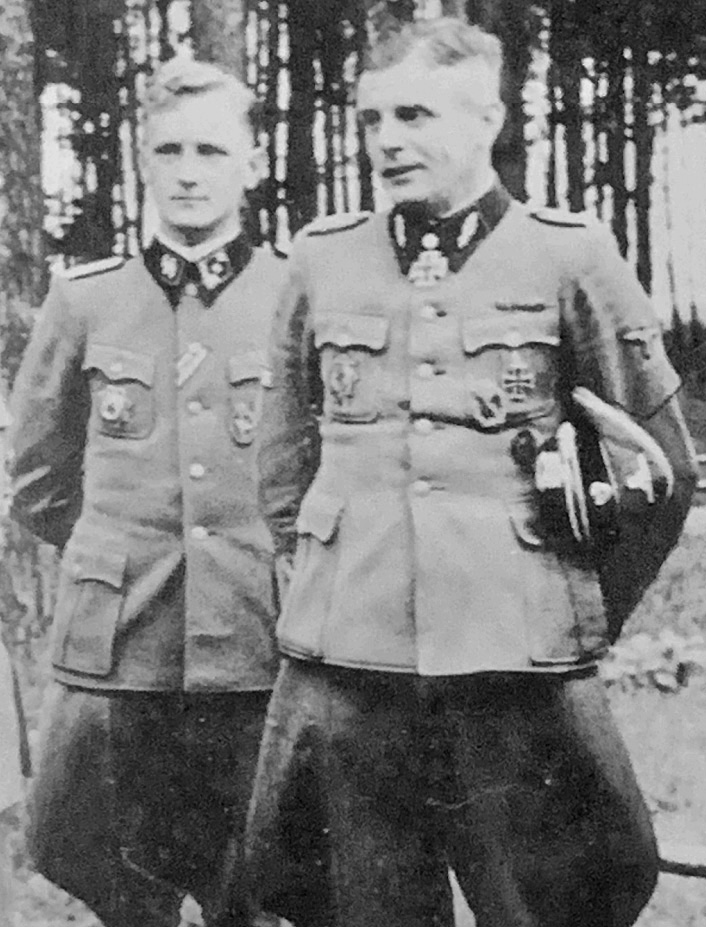
Rupert: In 1940 I was posted to the 1st company of the reconnaissance
battalion within the Das Reich Division. We were like scouts, tasked with going go out and determining
enemy positions and strength. This was very dangerous work, as we often
times were the first to meet the enemy. We had to always be aware of traps,
hidden ambushes, and mines.
We jokingly called ourselves the tip of spear, as we were first in to
get bloodied and to inflict damage on the enemy. We at times had artillery
spotters with us and could hit the enemy and destroy them before any full
engagement happened.
You won the German Cross in Gold?
Rupert: Yes, this was an award that was meant to bridge the large gap
between the Iron Cross and the Knight's Cross. It was seen back then as a very prestigious award, not many men earned it. I was very proud to be
presented with this for decisive actions against enemy positions on the
Eastern Front.
The Russians were very tenacious and when thrown out of an area,
would often try to counter-attack to retake it. We often had to fight man-to-man to beat them off. I could smell the vodka on their breath at times; they
used it for liquid courage.
This award was cumbersome and many elected for the cloth version
that could not snag while entering and exiting armored vehicles.
[Above: The German Cross in Gold (cloth version).]
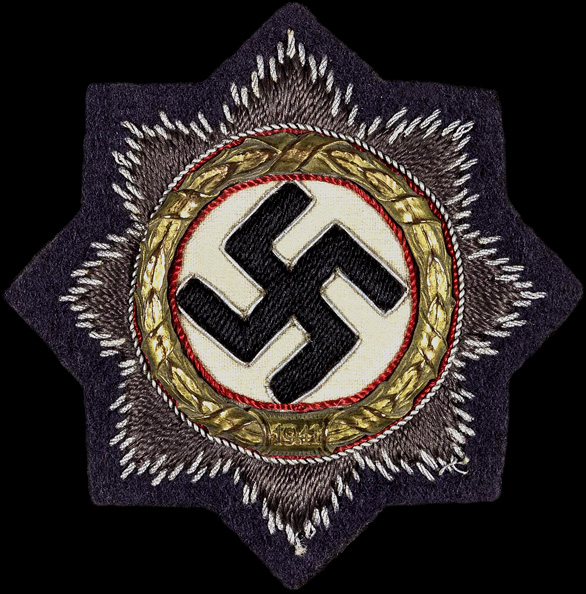
Rupert: I am afraid this is a topic every former member of the Waffen-SS must face. I must tell you that me and my men are free from any such accusations. We were purely combat soldiers and had no part in rounding up civilians or partisans. We had no time for that. Soldiers of Das Reich are accused of some actions in France and I can tell you personally I do not believe that any crime happened. I believe it was bad luck coupled with belligerent resistance members. You see, a town was burned down, and many civilians are said to have perished. I have spoken to comrades who were there and they disputed the claims made by the Allies, on their oath. They said many active resistance leaders were hung or shot, pursuant to standing orders. Something happened in a church that caused a fire, setting off hidden weapons or explosives that were inside. There was no intention of harming the women and children who were detained while men from Der Führer were sorting out the kidnapping and murder of German officers and men. I believe this was a case of bad luck, where something started a fire killing civilians and blame was placed on German soldiers. For me, this is indicative of all the claims made against us, the alleged crimes are not crimes at all, just reprisals for illegal acts committed against SS units. Some men may have gotten too emotional and targeted those who truly had nothing to do with the acts, but in wartime confusion, discernment is not always possible. I must tell you in no way is it excusable to take out anger or revenge on civilians who had nothing to do with crimes, and sadly this appears to have happened in a few cases, if the stories are true. In no way can I defend a comrade who did this out of hate or blind rage, but I feel a fair look is needed. We were all labeled as criminals after the war, it was unfair, and invited a lot of abuse by our captors. I will tell you we had many crimes committed against us, I saw medical units attacked, prisoners tortured and shot, nurses murdered, and false white flags by the enemy. What they accuse us of doing, they did the same things, so keep that in mind if you will please. I personally feel we were more disciplined than we get credit for, I never saw my men or any SS man doing anything illegal that would bring dishonor to our oath and memory.
[Above: The German soldier, lost in the midst of time, obscured by his enemies' lies, fights on in the hearts of the faithful. His deeds and death, perhaps unknown, echo through the ages, through our pens and weapons, he is with us.]
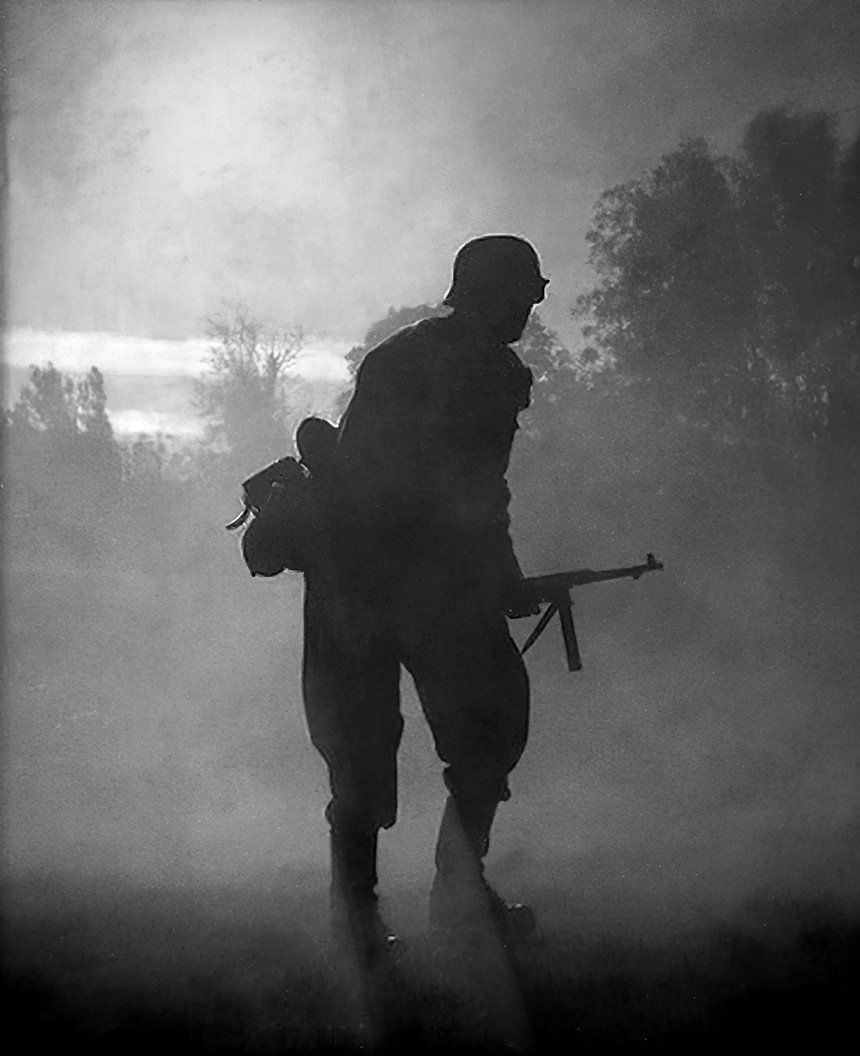
Back to Interviews